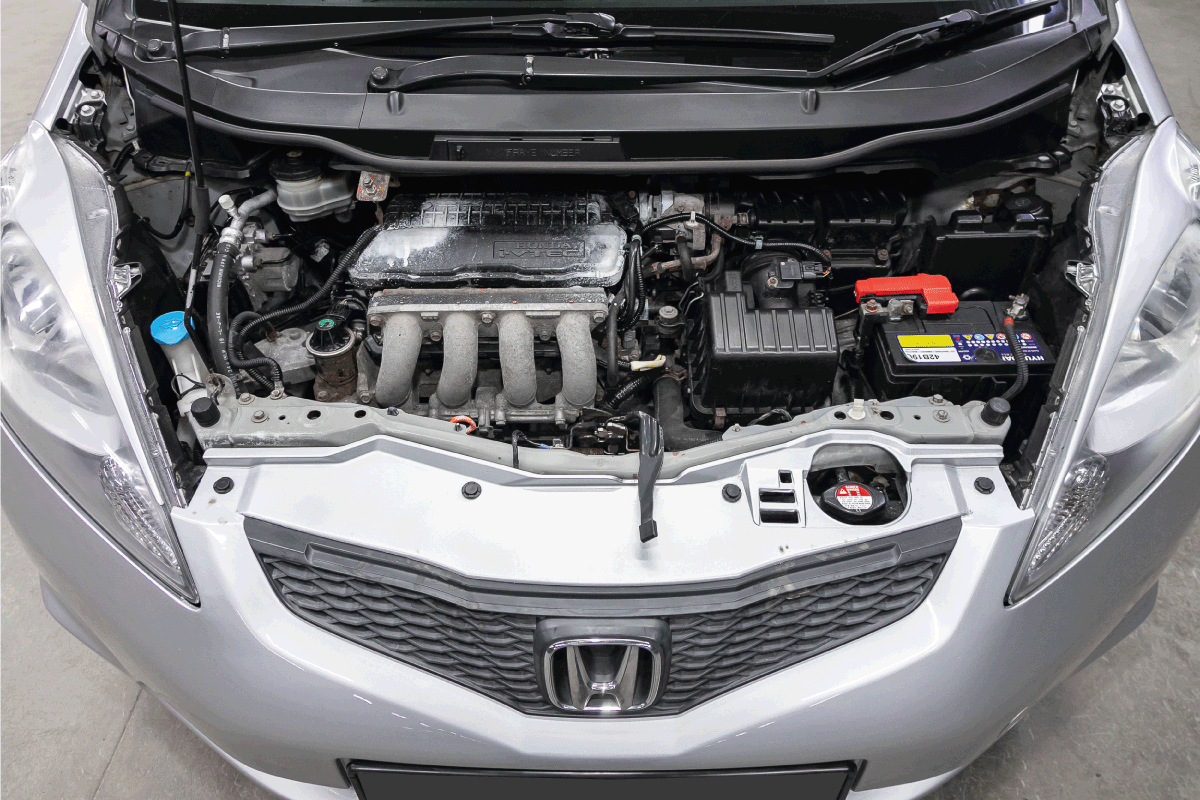The Honda Fit has received solid reviews for being a subcompact car with roomy seating, good responsiveness, and fuel efficiency. However, you may be wondering what to do and what went wrong if a Honda Fit fails to start. We researched common reasons that a Honda Fit refuses to start and how to troubleshoot. Learn how to figure out why your vehicle is staying grounded when you need to hit the road.
Here are some common reasons that your Honda Fit is having trouble starting:
- The battery has died
- There are loose or corroded connections
- The alternator has gone bad
- There is an electrical error
- The key fob has a problem
- The starter is broken
- The gas tank is empty
- There is a clog in the fuel filter
- There's a blown fuse
Don't panic or get frustrated if your Honda Fit won't start. Discover a reasonable cause and solution to get up and running again. In this post, we'll talk at length about each of these potential culprits to help you get your Honda Fit back in working order. Without further ado, let's get into it.

What's Stopping A Honda Fit From Starting
Eventually, every vehicle will suffer some car trouble during its lifetime. However, it can be frustrating when you need to get from point A to point B when your Honda Fit doesn't start.
Provided that you are taking good care of your vehicle and it is in good working order, it shouldn't have problems turning over. However, when a Honda Fit doesn't start, it's best to assess common issues keeping it from turning on and running.
1. Dead Battery
A car's headlights are a quick way to tell if a car battery is dying or dead. If you notice that the lights don't come on, are flickering, or dim, the battery is a goner. If the starter doesn't crank up or is cranking weakly, and accessories won't display, chances are your car won't start either.
2. Loose Or Corroded Connections
For electricity to travel to the right parts and a vehicle to get up and running, the cables and cords need to be securely connected to the right places. Corroded or loose wiring can lead to a car not starting, especially affecting the battery, engine, or ignition.
3. Bad Alternator
When the alternator is going bad, the battery might not be getting enough juice or recharging. If your car gets a jump and the engine bottoms out shortly after, the alternator is most likely bad.
Also, look out for a growling sound, lights that flicker, dimmed, or too bright, or a burning smell of hot rubber before the alternator fails for good.
4. Electrical Error
Sometimes the hardware under the hood can malfunction and develop an error. If parts are dying, losing power, or suffering faulty connections, an electrical error may cause a vehicle not to start.
You may see certain lights or signs on the dashboard present that conflict with what's going on. Take the car to the shop.
5. Key Fob Trouble
There's nothing like the beauty of a remote start key fob for your car. But, if your key fob is giving you trouble, chances are the battery is dead or on its last leg.
Make sure to regularly change the key fob battery as needed. Otherwise, you'll have to start your car manually. Also, key fobs may occasionally need to be outright changed.
6. Broken Starter
When you turn the key in the ignition, and the starter won't give, it's time to look at the connections. Loose, corroded, or broken wires pose a problem.
The solenoid may have to be replaced if the wires are connected. Damaged wires may make it so electricity cannot travel from the battery to the starter.
7. Empty Gas Tank
Regardless of whether the battery and starter circuit is good if a car is out of gas. It is not a safe or wise decision to push your vehicle's limits by running on fumes. Make sure the gas tank is full to feed the engine and get that car started.
8. Fuel Filter Clog
It may be a wise decision to apply a fuel injector cleaner to your vehicle now and then, as a clogged, dirty filter may stop a car from starting. When the fuel filter is bogged down with debris and build-up, it reduces the amount of fuel going to the engine, reducing performance.
However, a clogged filter will lead to a complete shutdown and an inability for the car to start because of the impact on the engine.
9. Blown Fuse
Aside from wiring problems, sometimes a blown fuse powering the starter circuit is why a car will not start. When checking out your vehicle, ensure the fuse is not loose or blown, and check for dirty or loose wires.
A blown fuse will make it so electricity can not flow where it needs to, so the car won't function properly.
Does Honda Fit Have Remote Start?
You can enjoy the advantage of starting up a car via remote start. A key fob for the Honda Fit includes the ability to remote start and shut down a vehicle, lock it, and unlock it at a distance of 400 feet.
Using remote start is a wonderful option for driving in inclement weather or for sheer convenience. If the remote start battery is dead or faulty, the car may not start up when the buttons are depressed.
How Do You Manually Start A Honda Fit?
If you need to start up a Honda Fit manually, there are a few ways to go about it.
If you have a dead key fob, get into the vehicle, turn the key in the ignition, and while holding down the brake, tap the key fob twice while it is near the start/stop button. Otherwise, you can use the key to start the Honda Fit.
What's Wrong With My Car If I Turn The Key And Nothing Happens?
There are more than a few reasons why a car won't start after turning the key in the ignition. Consider the following problems.
- The ignition switch has gone bad or is damaged.
- The car battery or starter is broken or completely dead.
- There may be loose or corroded cables.
- The alternator may have a problem.
If you cannot determine if any of the above-listed problems apply to your car and the vehicle will not start, take it in for an inspection.
If the key ignition doesn't turn, you may need to jiggle the key a bit, add some lubricant before turning it over, or give it a tap with a small tack hammer.
How Do You Tell If It's Your Starter Or Your Battery?
It's common for people to have difficulty determining whether their car starter or battery is a problem. However, there are a few things to look out for to know the difference.
Of course, to ensure a correct diagnosis, do take your car to a licensed, experienced professional to assess problems and replace car parts.
If a car starter fails, it will usually make a clicking sound when you turn the key in the ignition. The dashboard lights may be on, but the car will still not start. If you give your car a jump, the battery will get a charge, but a dead charger won't give.
When the battery is a problem, you may hear a low whine coming from the car. However, if you manage to get the car engine going, the vehicle will not start up again after you turn it off.
Read More: Can A Car Battery Charge Itself?
What Are The Signs Of A Bad Starter?
A starter will most likely give off audible signs that it is going bad and needs a replacement. If your starter is making clicking noises when turning the key, you hear buzzing, grinding, or the car is difficult to start, the starter is not in good shape.
If you think your vehicle needs a jump and the starter is bad, the engine won't kick into gear, but the battery will get a delivery of power.
When you are experiencing problems with your car, and you think the starter is bad, check the connections, look for corrosion, examine the engine flywheel, and take your car to a professional.

In Closing
We hope you leave this article feeling more confident when figuring out why a Honda Fit won't start. If you regularly take your car in for maintenance, you may be able to catch problems early or outright prevent them.
Learning more about your Honda Fit and troubleshooting starting problems will make you a more savvy driver. If you do not feel comfortable fixing problems with your vehicle, consult a licensed, experienced professional.
Before you go, be sure to check out the following posts:
